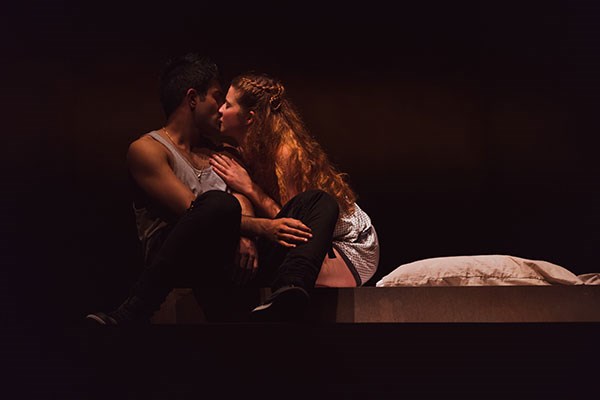When coming to a text as well-frequented as Romeo and Juliet, the pressure to put a different spin on it and find something new between its lines can be overwhelming.
This RSC production, directed by Erica Whyman and starring Bally Gill and Karen Fishwick in the titular roles, certainly feels that pressure, and its reactions to it are sometimes successful, sometimes not quite so.
The translation to a modern-looking context is performed smoothly; the blood feud between Montagues and Capulets lends itself to a rereading reminiscent of street gangs and knife violence, and the stage setting, with its brutalist, concrete-like design, helps in making the narration closer to the audience and relatable.
The decision to gender-swap some of the characters is less effective; the only instance in which it brings something truly innovative is with the Prince, delivered by Beth Cordingly in a way reminiscent of contemporary women of power.
In spite of an excellent performance by Charlotte Josephine, the choice of a female Mercutio inevitably removes some of the queer tension surrounding this character in the text – here she is a powerful and engaging presence, with the Queen Mab monologue in particular benefiting from an arresting delivery, but the feeling remains that something has been lost in translation.
Without doubt, the strongest suit of this production lies in the treatment of its two leads: both Romeo and Juliet are conceived and delivered in an acerbic, over-the-top, at times semi-serious fashion, which conveys the teenaged nature of their whirlwind romance in a way that is fundamental to the narration but rarely seen on stage.
Confronted with the need for innovation, this Romeo and Juliet delivered its most powerful punch when retrieving something that was in the text all along, but far too often bypassed or unseen.
